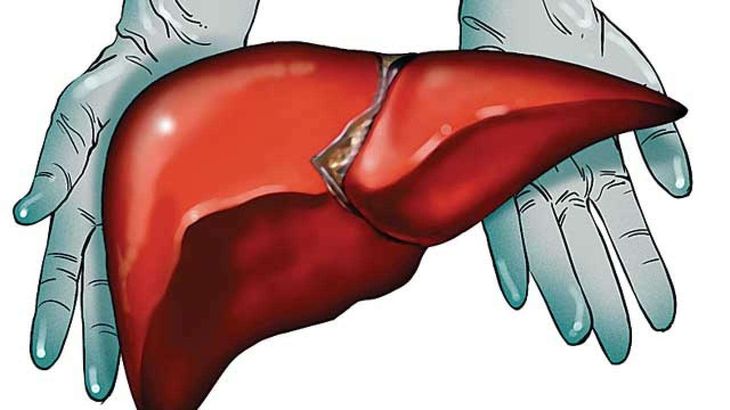Liver transplant Cost in India

India enjoys the privilege of having a plethora of Internationally-acclaimed hospitals and highly skilled and experienced surgeons who can perform complex procedures such as liver transplant with dexterity. Further, the cost of liver transplant in India is significantly lower than that in other countries including, US, UK and Singapore. Hence, a relatively large number of people from across the globe are flying for liver transplantation in India at present.
How can you define liver transplantation?
Liver transplantation is a complex procedure in which diseased or impaired liver is substituted with a healthy liver. This surgical procedure becomes a necessity in patients with acute liver failure or end-stage liver disease.
Why and When a liver transplant is recommended?
Located under the diaphragm to the body's abdomen, the liver is the largest organ responsible for performing a multitude of complex functions including, producing essential body proteins, breaking down the nutrients for energy release, forming bile juice that promotes digestion of fats and absorption of vital vitamins like A,D, E and K.
Thus, in case of an impairment or failure of the liver, finding an appropriate treatment solution is necessary to allow the execution of functions as mentioned above in a healthy manner.
Being a completely safe and result-oriented procedure, a liver transplant is one of the most favoured treatment protocols for patients with a host of liver conditions that may include,
1. End-stage cirrhosis caused due to overconsumption of alcohol, persistent hepatitis, primary biliary sclerosis, to name a few.
2. Viral hepatitis A, B, C, D, and hepatic thrombosis that may lead to hepatic failure.
3. Genetic liver abnormalities
4. Liver cancers including, Cholangiocarcinoma, primary hepatocellular carcinoma,
etc.
Who can be the donor?
Surgeons carry out Liver transplant by using healthy or a part of the liver from two types of names, living donor and deceased donor.
While a living donor can be someone who is either directly or indirectly related to the patient, the deceased cadaver liver donor is a person who has died recently. To qualify for a donor, one needs to fulfil a set of few criteria, such as
1. Blood group of the donor should be a good match with that of the recipient
2. The donor should meet the expected age group requirements.
3. Also, the donor should be physically and mentally fit and should refrain from indulging in habits like smoking.
Who can be the recipient?
Individuals suffering from chronic or irreversible liver diseases are the possible recipients for liver transplantation. Along with the physical aspects, the patient's emotional and financial issues are taken into account for in order to determine the candidacy.
Furthermore, patients with AIDS, cancer, alcoholic liver disease, chronic active infection, active substance abuse, unmanageable brain dysfunction and advanced heart disorder do not qualify for a liver transplant.
What do the Indian laws say?
As per human organ act 1996, a liver donation is restricted to the to the family members such as mother father, son, sister, brother, daughter or close relatives who are above 18 years and below 55 years of age. The donor should match the blood group of the recipient's and need to undergo a detailed screening procedure to meet the other physical and psychological constraints in toto.
How many types of a liver transplant is performed in India? What are they?
Liver transplant specialists working at India's top-notch medical facility replaces the diseased liver with a healthy one by using three methods namely, Orthotopic transplantation, Heterotopic transplantation surgery and Reduced-size liver transplantation.
- Orthotopic transplantation: This approach involves the removal of the damaged liver of the recipient with a healthy liver attained from the donor. During the course of this procedure, the impaired liver is eliminated from the four cardinal blood vessels and other structures present in the abdomen of the patient. Thereafter, the new healthy donor liver is connected followed by blood restoration process.
- Heterotopic transplantation: In this approach, healthy donor liver is positioned at a site close to the original one leaving the damaged liver where it was.
- Reduced-size Liver Transplantation: Often performed on children, reduced size liver transplantation involves a series of steps to execute the transplant of a part of the damaged liver with a healthy one.
What preliminary screening procedures do the patient need to undergo before a liver transplant?
The patient needs to undergo a number of screening test procedures may include imaging scans, blood tests, radiology, diagnostic tests and consults and exams. Other pre-transplant tests are
• Magnetic resonance imaging (MRI) of abdomen/pelvis OR
• Computed tomography (CT) scan of abdomen/pelvis
• A dobutamine stress echocardiogram (DSE)
• Ultrasound of abdomen/pelvis
• Electrocardiogram/chest X-ray
• Colonoscopy
• Mammogram or Pap smear for women
What is the cost of liver transplant in India?
Apart from Internationally-recognized infrastructure, world-class medical equipment and devices, and a pool of experienced and highly sought-after surgeons and liver specialists, India has sprouted as the safest harbours for patients looking for liver transplant surgery at minimal costs.
The cost of the transplant in India is one-fourth of that in the US. For instance, the cost of liver treatment at India's premier medical facilities is approximately $33,000 contrary to $1,25,000 in the US.
Nevertheless, the final prices offered to patients seeking liver transplant in India depends on several factors like,
- Patient's current health status
- Type of surgery
- Surgeons' experience
To calculate the actual cost, one must also include the cost of laboratory tests, postoperative medications, physical therapy and rehabilitation, hospital stay, supporting staff, transportation and more.
Plan your treatment journey with us now!





